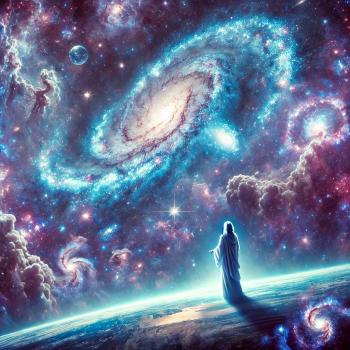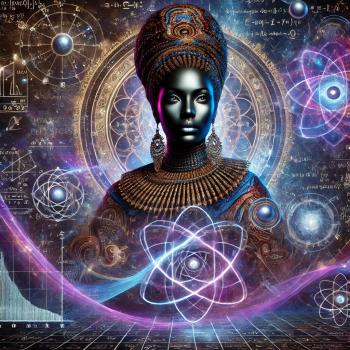 The concept of soulmates has been fascinating and debated for centuries. For the longest time, I didn’t believe in the concept of soulmates – I held the notion that individuals had the potential to be suitable mates for many people. Then I found the person who has demonstrated in many ways – both subtle and overt – that she is my soulmate. This caused me to revisit my own personal working hypothesis and the concept of soulmates in general.
The concept of soulmates has been fascinating and debated for centuries. For the longest time, I didn’t believe in the concept of soulmates – I held the notion that individuals had the potential to be suitable mates for many people. Then I found the person who has demonstrated in many ways – both subtle and overt – that she is my soulmate. This caused me to revisit my own personal working hypothesis and the concept of soulmates in general.
The premise of the soulmate It taps into our deepest yearnings for connection and understanding, raising fundamental questions about the nature of love, destiny, and the forces that draw people together. Let’s explore whether soulmates exist and if they are divinely orchestrated.
The Romantic Ideal of Soulmates
The idea of a soulmate is deeply ingrained in our cultural psyche, often portrayed as a predestined, perfect match. This romantic ideal suggests that for every person, there’s another who is their exact match, and their coming together is fated or divinely orchestrated. Love stories, poems, and films have perpetuated this concept, presenting soulmates as two halves of a whole, destined to find each other.
Historical and Cultural Perspectives
Various cultures and historical periods have had their own interpretations of soulmates. Plato, in his dialogue “The Symposium,” presented a theory that humans originally had four arms, four legs, and a single head made of two faces. According to this myth, humans were split in half, and since then, they have been searching for their other halves. This ancient Greek perspective offers a metaphysical explanation, hinting at a divine plan.
In Eastern philosophies, the concept of soulmates is often linked with karma and spiritual growth. The relationships we form are seen as part of a soul’s journey towards enlightenment, suggesting a more intentional, less random coming-together of souls.
The Role of Destiny and Free Will
The belief in soulmates often raises the question of destiny versus free will. If soulmates are predestined, does that mean our romantic lives are predetermined, and our choices don’t matter? This perspective can be comforting, as it suggests a cosmic plan guiding us to our true love. However, it can also be limiting, implying that our romantic happiness is out of our control.
On the other hand, the concept of free will suggests that relationships are formed based on personal choice, mutual effort, and compatibility. This view aligns more with modern psychology’s understanding of relationships, emphasizing personal responsibility and growth.
Psychological Perspectives
From a psychological standpoint, the idea of soulmates can be both beneficial and harmful. On the positive side, believing in soulmates can create a strong bond and commitment between partners. However, it can also lead to unrealistic expectations and disappointments when a partner doesn’t live up to the idealized soulmate standard.
Attachment theory, a key psychological framework, suggests that our early experiences with caregivers shape our adult relationships. Rather than destiny, it’s our developmental history that plays a significant role in whom we choose as partners and how we relate to them.
The Role of Love and Compatibility
Beyond the soulmate debate, the importance of love and compatibility in relationships cannot be overstated. Relationships thrive on mutual respect, understanding, shared values, and emotional connection. Whether or not a relationship is “meant to be,” it requires effort, communication, and compromise to be successful.
Personal Narratives and Experiences
Many people report feeling an instant, deep connection with their partners, describing it as a soulmate-like experience. These personal narratives shouldn’t be dismissed, as they highlight the profound and often inexplicable nature of human connection.
However, it’s essential to recognize that this feeling isn’t universal. Many happy, fulfilling relationships grow gradually, built on shared experiences and mutual affection rather than an instant recognition of destiny.
Realism in Relationships
Realism in relationships is about understanding that no partner is perfect and that every relationship requires work. It’s about recognizing that compatibility, shared goals, and willingness to grow together are key to a lasting bond. This approach values effort and understanding over the notion of predestined perfection.
Spirituality and Connection
For those with spiritual or religious beliefs, the idea of divine orchestration in relationships can be significant. It might mean that relationships are seen as part of a larger plan or a journey toward spiritual growth. This perspective can bring depth and meaning to relationships, but it’s important to balance this with the understanding that human agency and choice play crucial roles.
The Power of Choice
Emphasizing choice in relationships acknowledges the power individuals have in shaping their romantic destinies. It’s about taking responsibility for one’s happiness and recognizing that a fulfilling relationship is often the result of conscious decisions, mutual respect, and shared efforts.
Fantasy Versus Reality
While the concept of soulmates can be enchanting, it’s important to distinguish it from the realities of building and maintaining a relationship. Understanding that love is not just about finding the “right” person, but also about being the right partner, is crucial for a healthy and realistic approach to relationships.
Regardless of whether one believes in soulmates or not, nurturing a relationship is key to its success. This involves open communication, empathy, ongoing effort, and the willingness to navigate life’s challenges together.
Diverse Experiences of Love
Love and connection manifest in numerous ways. For some, it might feel like an instant recognition of a soulmate; for others, it might develop slowly over time. Respecting these diverse experiences is important in understanding the complex nature of human relationships.
Wrap up: A Balanced View
While the notion of soulmates and divine orchestration is a captivating and romantic concept, the reality of love and relationships is often more complex. Relationships are shaped by a combination of personal choice, mutual effort, and, for some, a sense of destiny. Ultimately, the health and success of a relationship depend less on the idea of being destined for each other and more on the daily commitment to nurture and grow the bond shared. Whether soulmates are real or not, the magic of love lies in the connection, understanding, and journey shared by two individuals.
Soulmates’ premise largely depends on individual beliefs, cultural influences and personal experiences. The romantic notion of soulmates provides comfort and magic to love stories, but it’s important to approach relationships with a balance of idealism and realism.
While my mental jury is still out as to whether soulmates exist and are divinely orchestrated, I do believe that energy is conscious and that this consciousness will aggregate and collate into what we may perceive to be soulmates. That said, I’m happy to say I’ve found my soulmate – the love of my life – and delight in the connection she and I share.
What do you think? Do you believe in soulmates? Have you found your soulmate? Are you looking for your soulmate? I look forward to reading your comments!
Derrick Day is the author of Deconstructing Religion, and the host of The Forward Podcast.
Follow him on Facebook, Instagram, Twitter, TikTok, and YouTube
















